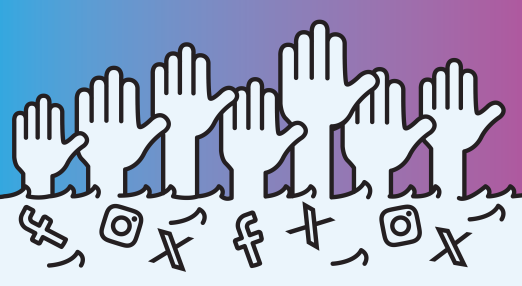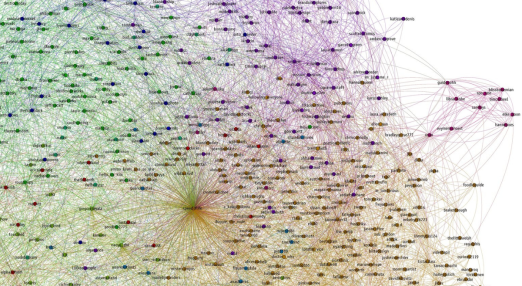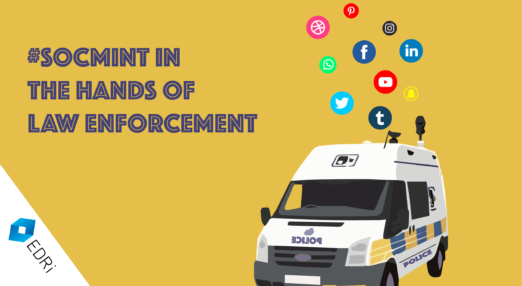social media
Filter by...
-

Exploring the aftermath of the annulment of Romanian election results – social media platforms, the democratic process, and the role of the DSA
EDRi member ApTI recaps events leading up to and after the annulment of the December 2024 result of the first round of Presidential elections in Romania. Investigations confirm TikTok’s failure to follow European and national electoral law. With the elections set to take place again later this year, ApTI explores the relationship between the discourse on social media platforms, the democratic process and how legislation such as the DSA can act as a safeguard.
Read more
-

Meta and X are going rogue. Here is what Europe should do now.
With Elon Musk, Mark Zuckerberg, Jeff Bezos and many other tech billionaires cuddling up to an ever more authoritarian Trump administration, it is crucial that the EU sticks to stringent enforcement of its tech laws. However, to solve the core problem, we have to curb the immense grip Big Tech has on our institutions and invest in truly independent digital alternatives.
Read more
-

“Social media profiles and phone contacts” used as proof of identity for deportations
Thirteen non-EU countries sometimes accept “social media profiles and phone contacts” as evidence of identity for the purpose of deportations, according to an internal European Commission assessment of third country cooperation on readmission.
Read more
-

Everyone is on Mastodon now, but why?
Millions of people and organisations are flocking to Mastodon in the wake of Elon Musk’s Twitter takeover. EDRi is among those who recently started using the decentralised and free social network. What does Mastodon do better, and why does it get digital rights groups all excited?
Read more
-

Putting the brakes on Big Tech’s uncontrolled power
Will 2022 go down as the year the EU tamed Big Tech? In the very early morning hours of Saturday, 23 April, after 16 hours of final negotiations, EU lawmakers reached an agreement on the Digital Services Act (DSA), which is certainly a watershed moment for our digital future. As the deal reached is a top-level political agreement, the final text of the law is yet to be released.
Read more
-

Italy proposes age verification and digital identities for accessing social media
EDRi member Hermes Center sheds light on the current case against TikTok in Italy, where three solutions are circulating on how to make sure that children will not access certain online contents unless supervised by their guardians.
Read more
-

The companies in control of our secret identities
EDRi member Privacy International published a research on ad tech companies' data collection practices which are employed to create an assumed picture of you. The study shows that the profiles created for the data subjects are based on information pieced together from incomplete data and using marketing algorithms. Hence, this data forms an uncanny picture of yourself, one that you may not have voluntarily revealed, a digital shadow over which you have very little practical control.
Read more
-

Polish law on “protecting the freedoms of social media users” will do exactly the opposite
EDRi member Panoptykon Foundation carefully analyses the Polish law on “the protection of freedoms of social media users” which turns out to introduce data retention, a new, questionable definition of “unlawful content”, and an oversight body that is likely to be politically compromised.
Read more
-

UK: Stop social media monitoring by local authorities
Would you like your local government to judge you by your Facebook activity? In a recent study, we investigated how local authorities (Councils) in Great Britain are looking at social media accounts as part of their investigation tactics on issues such as benefits, debt recovery, fraud, environmental investigations, and children’s social care.
Read more
-

Cryptocurrency scammers flood Facebook users with manipulative ads
Scammers using fake Forbes articles and anti-EU disinformation as bait continue to target Facebook users across Europe, the EDRi member Metamorphosis Foundation has warned.
Read more
-

Hungary: “Opinion police” regulate Facebook commentaries
There have been a number of critical news reports from around the world stating that Hungary’s COVID-19 state-of-emergency legislation is “creating a chilling effect”. Such headlines miss the mark somewhat, as chilling effects are far from new.
Read more
-

Who should decide what we see online?
Online platforms rank and moderate content without letting us know how and why they do it. There is a pressing need for transparency of the practices and policies of these online platforms.
Read more
